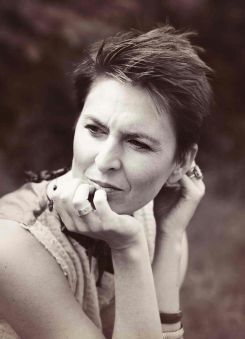as part of the RIAI Conference 2020
German Architect Anna Heringer will speak about architecture and climate change at this year's annual conference of the Royal Institute of the Architects of Ireland.
2020 has been a year like no other and the architectural profession and the construction sector in Ireland and around the world had to swiftly adapt to the challenges.
The RIAI Conference 2020 will debate the changes and challenges affecting Irish society now and into the future across four main themes: the Future of Cities, Climate Change, Housing Innovation, Architecture and Diversity.
Speakers include Danish architect and urbanist Jan Gehl, Professor Ricky Burdett CBE, from the LSE Cities (UK), Annalie Riches and David Mikhail of Mikhail Riches (UK) and award winning German architect Anna Heringer.
Anna Heringer
Anna Heringer Architecture, Germany
 (C) Nina Rettenbacher
(C) Nina Rettenbacher
For Anna Heringer, architecture is a tool to improve lives. As an architect and honorary professor of the UNESCO Chair of Earthen Architecture, Building Cultures and Sustainable Development, she is focusing on the use of natural building materials. She has been actively involved in development cooperation in Bangladesh since 1997. Her diploma work, the METI School in Rudrapur, was realised in 2005 and won the Aga Khan Award for Architecture in 2007. Other awards include the Global Award for Sustainable Architecture, the Loeb Fellowship at Harvard's GSD and a RIBA International Fellowship. Over the years, Studio Anna Heringer has realised projects in Asia, Africa and Europe.
Anna Heringer is lecturing worldwide at conferences and has been visiting professor at various universities such as Harvard, ETH Zurich and TU Munich. Her work was widely published and exhibited in the MoMA New York, the V&A Museum in London and at the Venice Biennale among other places.
Supported by the Goethe-Institut Irland.
Back